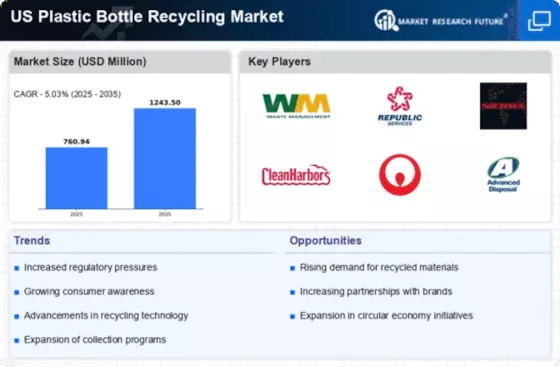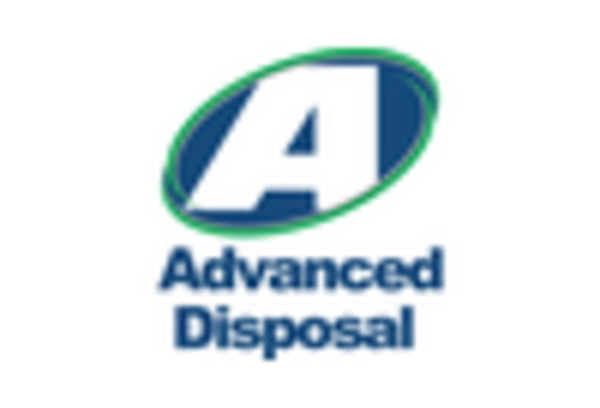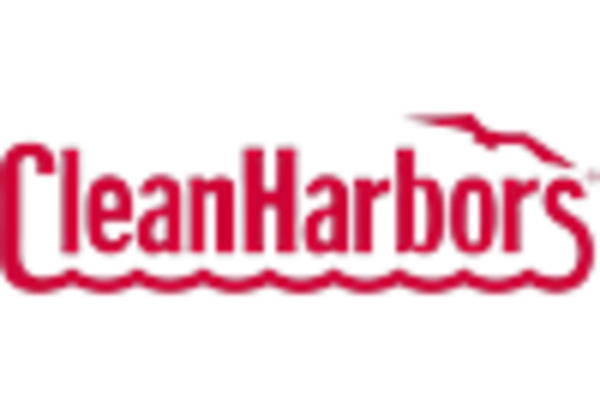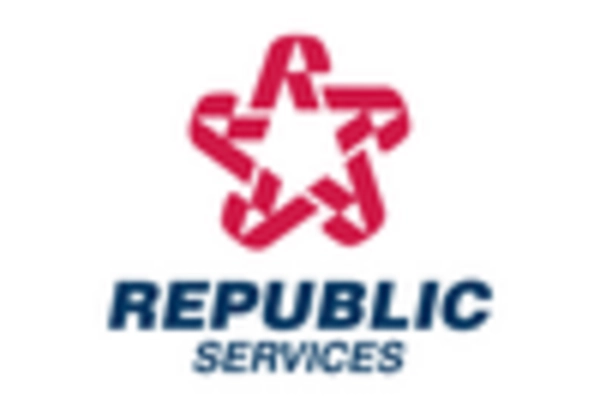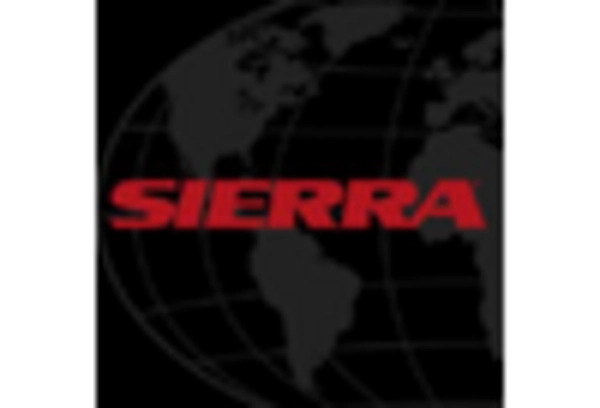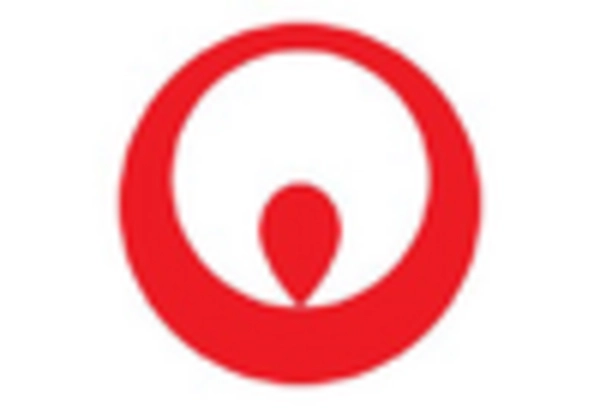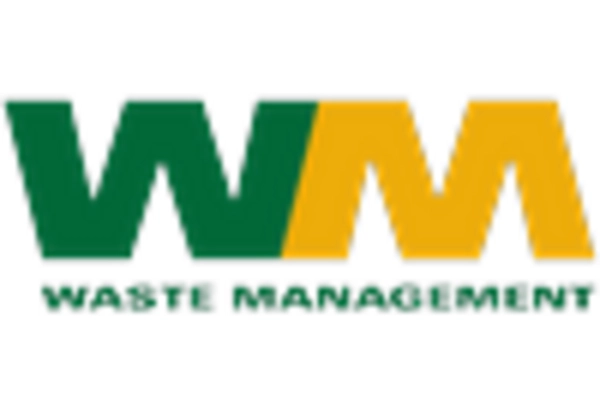Growing Environmental Awareness
The US Plastic Bottle Recycling Market is experiencing a surge in consumer awareness regarding environmental sustainability. As individuals become increasingly cognizant of the detrimental effects of plastic waste on ecosystems, there is a notable shift towards recycling initiatives. According to recent surveys, approximately 75% of Americans express concern about plastic pollution, which drives demand for effective recycling solutions. This heightened awareness is prompting both consumers and businesses to prioritize recycling practices, thereby fostering a more robust market for plastic bottle recycling. Furthermore, educational campaigns and community programs are being implemented to enhance public understanding of recycling benefits, which could potentially lead to increased participation rates in recycling programs across the nation.
Corporate Sustainability Initiatives
An increasing number of corporations are adopting sustainability initiatives that prioritize recycling, thereby impacting the US Plastic Bottle Recycling Market. Many companies are setting ambitious goals to reduce their plastic footprint and enhance their recycling efforts. For instance, major beverage companies are committing to using recycled materials in their packaging, which could potentially drive demand for recycled plastic bottles. This trend is indicative of a broader shift towards corporate responsibility, where businesses recognize the importance of sustainable practices in their operations. As these initiatives gain traction, they are likely to contribute to a more circular economy, ultimately benefiting the plastic bottle recycling market.
Consumer Demand for Recycled Products
The US Plastic Bottle Recycling Market is witnessing a growing consumer preference for products made from recycled materials. As consumers become more environmentally conscious, there is an increasing demand for goods that utilize recycled plastics, including bottles and packaging. This trend is supported by market data indicating that products with recycled content are often perceived as more sustainable, leading to higher sales. Retailers are responding to this demand by expanding their offerings of recycled products, which could further stimulate the recycling market. The alignment of consumer preferences with sustainability goals is likely to create a positive feedback loop, encouraging more robust recycling practices and enhancing the overall market for plastic bottle recycling.
Regulatory Support and Policy Changes
The US Plastic Bottle Recycling Market is significantly influenced by regulatory frameworks and policy initiatives aimed at promoting recycling. Various states have enacted legislation to encourage recycling practices, such as bottle deposit laws and extended producer responsibility (EPR) programs. These policies incentivize manufacturers to take responsibility for the lifecycle of their products, thereby fostering a more sustainable approach to plastic waste management. For example, states with bottle deposit laws report recycling rates exceeding 70%, compared to the national average of around 30%. Such regulatory support not only enhances recycling rates but also stimulates market growth by creating a more favorable environment for recycling businesses.
Advancements in Recycling Technologies
Technological innovations are playing a pivotal role in shaping the US Plastic Bottle Recycling Market. Recent developments in recycling technologies, such as enhanced sorting systems and advanced processing techniques, are improving the efficiency and effectiveness of recycling operations. For instance, the introduction of AI-driven sorting machines has the potential to increase the accuracy of material separation, thereby reducing contamination rates. This not only optimizes the recycling process but also enhances the quality of recycled materials. As a result, the market is likely to witness a rise in the volume of recycled plastic bottles, contributing to a more sustainable circular economy. The integration of these technologies may also attract investments, further bolstering the industry's growth.


